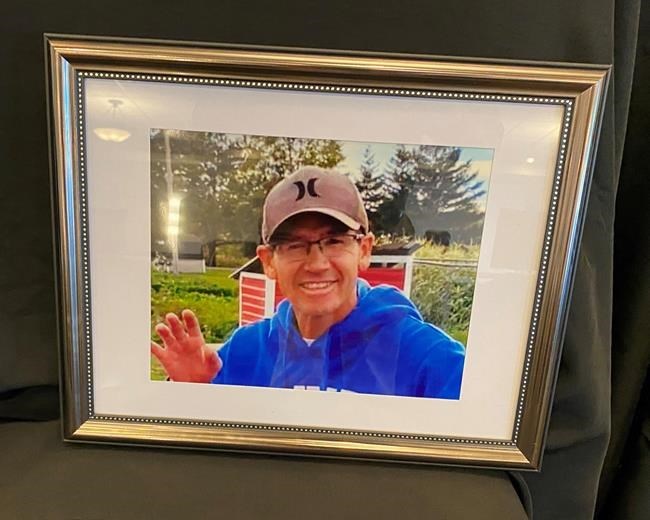MIRAMICHI, N.B. — The uncle of an Indigenous man shot dead by police in New Brunswick in 2020 told a coroner's inquest Wednesday his nephew would be alive today had a former community policing model not been disbanded.
Funding for the program that involved band officers and RCMP members was cancelled about eight years ago, Ken Levi told a five-member coroner's jury investigating the death of Rodney Levi. He said he's convinced community officers would have been able to defuse the situation.
"We would already know it was Rodney," Ken Levi, who was a member of the community policing program before it was disbanded, told reporters outside the hearing Wednesday. "We would have called family. We would have responded, and I'm pretty sure he would have come."
The 48-year-old from the Metepenagiag First Nation was shot dead by the RCMP on the evening of June 12, 2020, after police responded to a complaint about a disturbance in a home in nearby Sunny Corner, N.B.
Ken Levi, who is now a federal fisheries officer, said the special constables knew the people in the community and spoke their language. In most cases, he added, people causing problems would be calmed and taken home without serious confrontations.
The shooting was investigated by Quebec's police watchdog, the Bureau des enquêtes indépendantes, which submitted a report to New Brunswick prosecutors in December. Quebec prosecutors have said officers at the scene believed Levi — who was wielding two large knives — was using force against them, and they shot him to protect themselves and others.
In January 2021, New Brunswick's Public Prosecutions Service said no criminal charges would be filed against officers involved in the shooting.
Police had tried to subdue Levi three times using an electroshock weapon before they shot him twice. An autopsy confirmed Levi had amphetamine and methamphetamine in his body at the time of the shooting.
Metepenagiag Chief Bill Ward said he knew Levi his whole life and had seen him under the influence of drugs, but he was never aggressive, mean or intimidating.
Ward testified that Levi came to visit him on the day of his death and said he was hoping to move to Western Canada for work and to get away from the people who were encouraging his drug use.
Ward said there is a need for more rapid help for people facing mental health issues in the province, and for greater help for people with addictions.
"There has to be availability of beds for detox," Ward told reporters outside the inquest. "And definitely longer term solutions to treatment centres rather than the traditional 30 days. There has to be something here in New Brunswick that offers three to six months, or even a year, to get away from this."
The inquest also heard Wednesday from forensic pathologist Dr. Ken Obenson, who conducted the autopsy on Levi and confirmed he died from two gunshot wounds to the chest.
Coroner John Evans said Tuesday he expects to hear from about 27 witnesses before the hearings conclude next week.
The jury is composed of two men and three women. Evans said two jurors are Indigenous and another married into an Indigenous family. "Having a jury with gender balance and cultural balance I think is going to be very, very helpful," he said.
Levi's sister, Rhoda Levi, said Tuesday she was pleased with the jury selection and hoped the province would act on the inquest's recommendations.
"I hope that the government does everything it can to implement so that no one else is shot and killed by the RCMP," she told reporters.
Levi's killing came days after an Edmundston, N.B., police officer fatally shot Chantel Moore, a 26-year-old Indigenous woman, during a wellness check. The two killings sparked anger in the province's Indigenous community.
A coroner's inquest does not assign blame but issues recommendations intended to help prevent a death under similar circumstances in the future.
This report by The Canadian Press was first published Sept. 29, 2021.
Kevin Bissett, The Canadian Press




